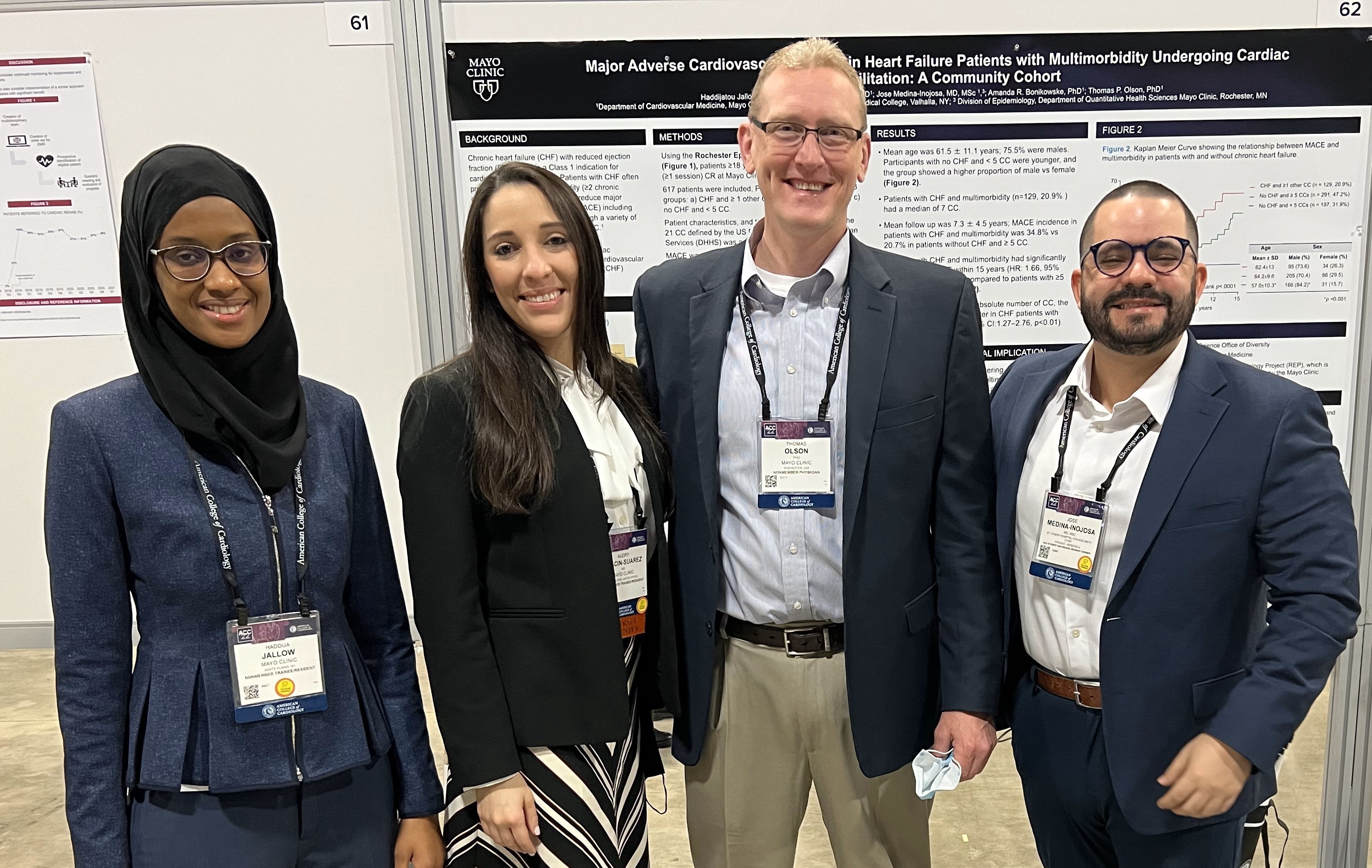SOM Student Publishes Research Conducted In Prestigious Fellowship Program
Haddijatou Jallow Conducted Research on Cardiac Rehabilitation During the Mayo Clinic Summer Research Fellowship

During the summer following her first year at New York Medical College (NYMC), Haddijatou Jallow, SOM Class of 2024, was selected to participate in the highly competitive Mayo Clinic Summer Research Fellowship Program. Jallow’s research that she conducted that summer on cardiac rehabilitation was recently published in the Journal of the American College of Cardiology and she presented the study at the American College of Cardiology Conference.
“Out of the several thousands of applicants from all around the country who applied to this very prestigious fellowship with the Mayo Clinic, I was one of the few chosen to participate in it,” said Jallow. “This opportunity to conduct research alongside the renowned researchers at the Mayo Clinic on the impacts of cardiac rehabilitation on patients with different heart conditions and other chronic conditions has contributed significantly to my growth as a medical student.”
The eight-week paid fellowship program allows medical students underrepresented in medicine to spend time at the Mayo Clinic in Rochester, Minnesota, conducting research in several medical disciplines. During her time in the program, Jallow conducted clinical research aimed at comparing the efficacy of home-based cardiac rehabilitation to hospital-based cardiac rehabilitation during the COVID-19 pandemic.
“At the end of the program, I became the first author of an abstract based on data collected on multi-morbidity and how it impacts patients who have already undergone cardiac rehab and their subsequent likelihood of having a future major adverse cardiovascular event (MACE). Our research found that having heart failure was a significant contributor to MACE even after cardiac rehabilitation compared to having multi-morbidity (two or more chronic conditions), such as diabetes or hypertension. Our findings were significant because they demonstrate that more attention needs to be given to patients with heart failure and individualized plans need to be created for them during cardiac rehab to decrease their likelihood of MACE in the future.”

